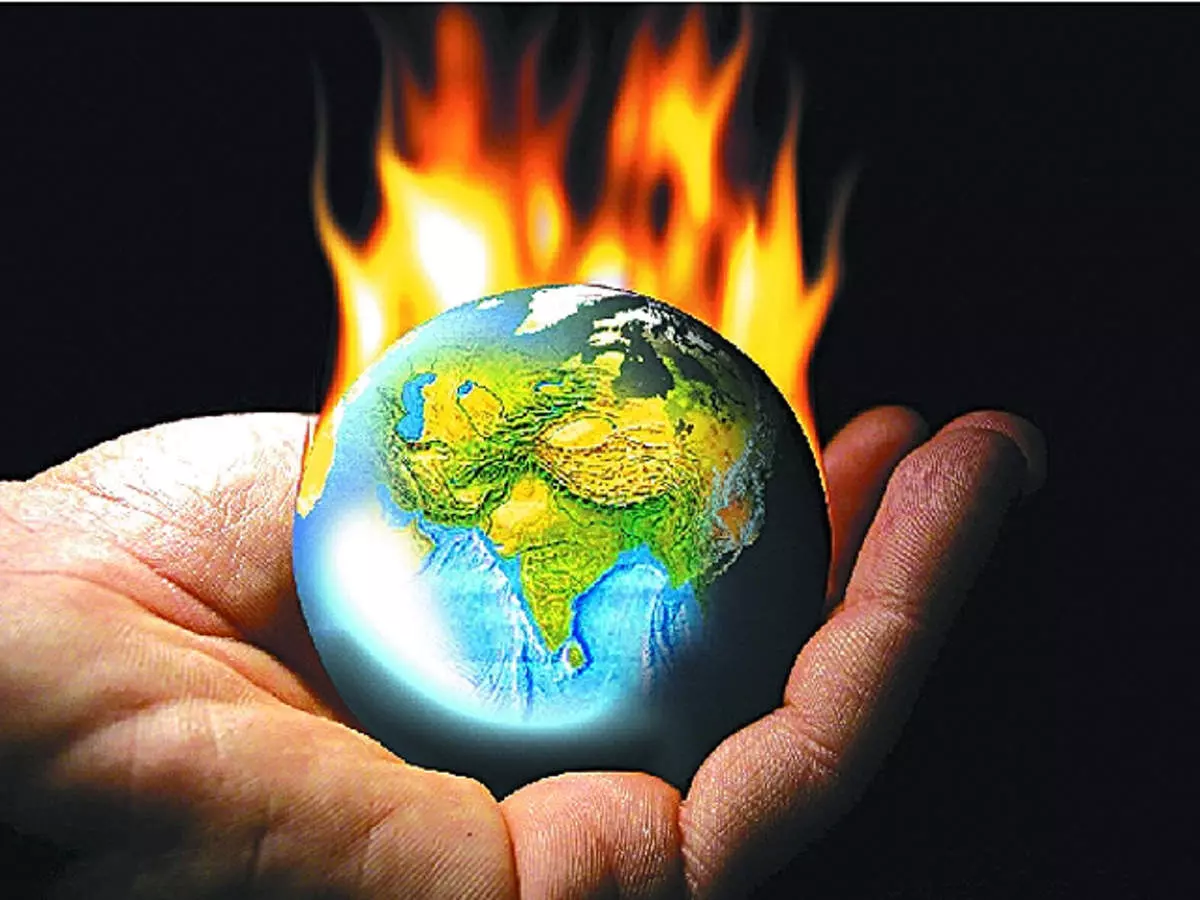
UN report warns of disastrous 2.7C temp. rise if countries fail pledges
text_fieldsA report from the United Nations published on Tuesday warned that if countries fail to strengthen their climate pledges, the world will face temperature rises of at least 2.7C, The Guardian reported.
Countries' current pledges would reduce carbon emissions by only 7.5% by 2030, which is far less than the 45% cut according to scientists to limit global temperature rises to 1.5C- the aim of the Cop26 summit which opens in Glasgow this Sunday.
The UN secretary-general general, António Guterres, described this as a "thundering wake-up call" to leaders. He said that countries are squandering a massive opportunity to invest Covid-19 fiscal and recovery resources in sustainable, cost-saving, planet-saving ways. Meanwhile, experts demanded radical action against fossil fuel companies.
The report says that the net-zero promises made by more than 100 countries around mid-century are not enough to avert temperature disasters. The report examines the shortfalls between countries' intentions and actions needed on the climate. Many countries' net-zero pledges were found vague and needed a stringent cut in emission this decade to limit global heating from a catastrophic mark.
UN Environment Programme (UNEP) executive director Inger Andersen said that climate change is a "now problem" rather than a future problem. He added that the world has eight years to almost halve the greenhouse emissions, make plans, policies, implement them, and ultimately deliver the emission cuts. "The clock is ticking loudly," he said.
Last year, emissions had fallen by about 5.4% during Covid lockdowns, but only around one-fifth of the spending for economic recovery was put on efforts to cut Carbon, the report stated. The UN said there is doubt on the world's willingness to shift the economy to tackle the climate crisis despite "build back better" promises by governments.
In the run-up to Cop26, countries were supposed to submit their national plans on emission cuts - nationally determined contributions (NDCs) - for the next decade under the Paris climate agreement 2015. But UNEP report found that only half the countries had submitted their NDCs, while larger emitters like China and India are yet to turn in theirs. Also, Russia, Brazil, Australia, and Mexico had presented weak plans not in congruence with their Paris pledges, while many are not even able to maintain their existing pledges. The report said that 49 countries and the European Union had adopted longer-term Zero pledges for mid-century as of September. This puts about half of global emissions, half of GDCP and around a third of the worldwide population under net-zero pledges.
Inger Andersen said that if the net-zero promises by the governments were implemented fully, the world could shave 0.5C off the projected warming of 2.7C that UNEP predicted. Other experts say that if the world continues the current course, it will fail to keep global warming to 1.5C or even 2C, betraying future generations.
The report also highlighted rising rates of methane, a potent greenhouse gas emitted out of animal husbandry, natural gas extraction and waste. Methane is the second-largest contributor to temperature rise, after Carbon, and 20% of it could be cut at zero cost by better management of gas drilling, stopping flaring and capping old wells. The US and the EU had signed a pledge to reduce it globally by 30% this decade.























